2017 Legislative Session Update: Week 4
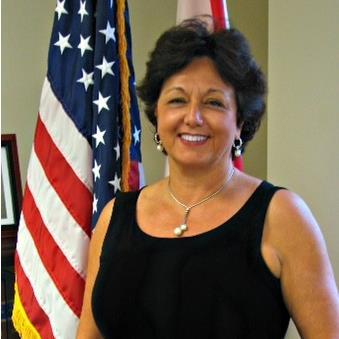 This was a very busy but successful week in the Florida Senate! I was able to present seven of my bills to various committees and participate in the passage of six bills on the Senator floor. During the week we also held appropriations committees meetings to discuss the budget for the upcoming fiscal year. It was also a great week personally as a number of constituents from all different organizations and businesses were at the Capitol to discuss issues involving our district!
This was a very busy but successful week in the Florida Senate! I was able to present seven of my bills to various committees and participate in the passage of six bills on the Senator floor. During the week we also held appropriations committees meetings to discuss the budget for the upcoming fiscal year. It was also a great week personally as a number of constituents from all different organizations and businesses were at the Capitol to discuss issues involving our district!
Wednesday evening I received an award from TechNet for Legislation that I sponsored with former Senator Garrett Richter last year relating to security measures at secondhand dealers. One of the provisions of the bill allows for certain technology to be used for the sale and resale of used electronic devices through kiosks which ended up leading to significant information being discovered during an important police investigation. I could not be more pleased to know that this legislation is making a difference in our community. Thank you TechNet for the recognition!
Sponsored Bills:
SB 588: Drug Overdoses
This bill passed unanimously out of its first committee of reference. The bill permits the voluntary reporting of a suspected or actual overdose of a controlled substance to the Department of Health (DOH) by basic and advanced life support service providers that treat and release, or transport, a person in response to an emergency call. The bill defines overdose as a condition, including extreme physical illness, decreased level of consciousness, respiratory depression, coma, or death resulting from the consumption or use of any controlled substance which requires medical attention, assistance, or treatment, or clinical suspicion for drug overdose, such as respiratory depression, unconsciousness, or altered mental status, without other conditions to explain the clinical condition. If a report is made, it must contain the date and time of the overdose, the address of where the patient was picked up or where the overdose took place, whether an emergency opioid antagonist was administered, and whether the overdose was fatal or non-fatal. Additionally, a report must include the gender and approximate age of the patient and the suspected controlled substances involved only if permitted by the reporting mechanism. Reporters must use best efforts to make the report within 120 hours. The DOH must make the data received available to law enforcement, public health, fire rescue, and EMS agencies in each county within 120 hours after receipt. Quarterly, the DOH must provide summarized reports to the Statewide Drug Policy Advisory Council, the Department of Children and Families (DCF), and the Florida Fusion Center, which may be used to maximize the utilization of funding programs for licensed basic and advanced life support service providers, and to disseminate available federal, state and, private funds for local substance abuse treatment services. The bill makes a reporter exempt from civil or criminal liability for reporting if the report is made in good faith. It also specifies that the failure to make a report is not grounds for licensure discipline against a basic or advanced life support service.
SB 744: Community Associations
This bill passed unanimously in the Regulated industries committee on Tuesday. It revises requirements related to the governance and operation of condominium, cooperative, and homeowners’ associations. The bill revises the requirement that high-rise condominium and cooperative buildings must be retrofitted with a fire safety system and engineered life safety systems (ELSS). It also repeals the provisions that require a condominium, cooperative, and homeowners’ associations of fewer than 50 units or parcels, regardless of the association’s annual revenues, to prepare a report of cash receipts and expenditures instead of a compiled, reviewed, or audited financial statement. The bill also makes changes that will affect cooperative associations and homeowner’s associations. For a full list of all of the changes outlined in this bill, please visit: http://www.flsenate.gov/Session/Bill/2017/00744/?Tab=Analyses and view the bill text and staff analyses.
SB 446: Underground Facilities
I presented this bill to the Senate Communications, Energy, and Public Utilities committee where it passed unanimously. CS/SB 446 amends Ch. 556, F.S., the “Underground Facility Damage Prevention and Safety Act” by:
• Requiring an excavator that causes contact with or damage to any pipe or other underground facility to immediately report the contact or damage by calling 911 if any natural gas or other hazardous substance or hazardous material regulated by the Pipeline and Hazardous Materials Safety Administration (PHMSA) of the U.S. Department of Transportation (USDOT) has escaped;
• Requiring a member operator to file a report with the Sunshine State One-Call of Florida (SSOCF) system of all events it has received notice of through the system, which have resulted in damages to its underground facilities;
• Requiring the SSOCF board of director’s to make an annual progress report to the Legislature and the Governor on the participation by municipalities and counties in the one-call notification system which should include a summary of the damage, reporting data received by the system for the preceding year and any analysis of the data by the board.
SB 730: Insurer Insolvency
I presented this bill to the General Government Appropriations subcommittee on Wednesday morning. SB 730 incorporates national model acts on receivership of insolvent insurance companies of the National Association of Insurance Commissioners, fixes inconsistent judicial rulings and streamlines Chapter 631. This bill will provide efficiencies in the receivership processes so that the state can efficiently liquidate the insolvent company and use the proceeds to equitably pay claims, including those of policyholders, creditors and employees. This consumer-centric legislation ensures that policyholders will receive continuity of care during an HMO insolvency by moving health care providers up in the priority of claims payments – which provides parity to consumers in a PPO liquidation. The bill closes a loophole that allows for Directors and Offices of a liquidated insurance company to gain access to funds through a third party. It limits the amount of time between an order to show cause and the return hearing, requiring that the return hearing be held within 60 days of the entry of an order to show cause to ensure the liquidators ability to quickly act to protect consumers. The bill also requires Directors and Officers of the liquidated insurance company to cooperate with the receiver and allows the state to refund unearned premium to a consumer without a burdensome claims process. Finally, the bill clarifies that the Office of Insurance Regulation can continue to pursue regulatory remedies against insolvent entities during the automatic stay required in receivership proceedings and it eliminates unnecessary notices and outdated statutes to provide efficiency and correct conflicts.
SB 716: Real Estate Appraisers
I presented this bill to the General Government Appropriations subcommittee on Wednesday. The bill revises Florida law to implement registration and supervision systems for appraisal management companies to meet minimum requirements for such companies established by federal law. An appraisal management company is an entity that serves as an intermediary and provides certain prescribed services to creditors. Implementation of a registration system for appraisal management companies satisfying federal requirements will allow eligible persons and appraisal management companies licensed in Florida to continue to perform appraisal services for federally related transactions.
SB 398: Estoppel Certificates
I presented this bill to the Senate Rules committee on Wednesday afternoon. SB 398 revises requirements for estoppel certificates for condominium, cooperative, and homeowners’ associations. Under current law, when an ownership interest in a condominium unit, cooperative unit, or homeowners’ parcel is transferred, the new owner is jointly and severally liable with the previous owner for unpaid assessments owed to a condominium, cooperative, or homeowners’ association. Unpaid assessments may also become a lien on the property. Purchasers generally request that the seller provide an estoppel certificate from the condominium, cooperative, or homeowners’ association to protect against undisclosed financial obligations and to transfer title to the property free of any lien or encumbrance in favor of the association. An estoppel certificate certifies the amount of any total debt owed to the association for unpaid monetary obligations by a unit or parcel owner as of a specified date. Unfortunately, the current process employed by a number of associations through their management companies is cumbersome and expensive and oftentimes holds up real estate closings. This bill would proscribe practices and procedures for the estoppel process. The full list of changes for this bill can be found in the bill text and the staff analysis at this link: http://www.flsenate.gov/Session/Bill/2017/0039.
SB 954: Canvass of Vote-By-Mail Ballots
On Wednesday, I presented my bill to the Senate Rules Committee. This was the bill’s third committee stop after passing favorably in the Ethics and Elections and Senate Judiciary committees. This bill creates a process to remedy and count a vote-by-mail ballot where the ballot signature submitted by the voter does not match the signature on file in the registration book/precinct register. The problem that the bill is addressing is that oftentimes as we age our signatures change and don’t match the signature on record with the Supervisor of Elections. Currently, when a vote by mail ballot is received by the Supervisors and the signature on the envelope doesn’t match the signature on record the vote is not counted. The bill is intended to provide a cure to the issue and provides that in order for a mismatched-signature ballot to be counted the voter must submit a signed affidavit attesting to his or her eligibility along with the fact that he or she requested and returned a vote-by-mail ballot, and acknowledging that committing voter fraud or voting multiple ballots is a 3rd degree felony and the same type of current and valid picture identification required at the polls. My goal with this bill is to ensure that as many Florida voters have their voices heard as possible. This was the final committee stop for this bill and I hope that it is heard on the Senate floor very soon.
My Committees:
Commerce and Tourism
The Commerce and Tourism committee had a very busy meeting on Monday afternoon. Senator Brandes presented Senate Bill 794 regarding Motor Vehicle Service Agreement Companies. This bill expands the methods by which a motor vehicle service agreement company may insure its ability to pay out on its warranty claims, specifically by allowing the motor vehicle service agreement company to procure insurance to cover its motor vehicle service agreement claim exposure from a risk retention group that is authorized to do business in Florida. The risk retention group must meet certain requirements that ensure its financial health. The bill also allows a motor vehicle service agreement company that provides vehicle protection expenses to obtain insurance coverage on its warranty claims from an insurer that is affiliated with the company. Lastly, the bill allows a lender, finance company, or creditor to cancel a motor vehicle service agreement if those entities are authorized to do so in the underlying service agreement. The committee voted this bill favorably.
Following Senator Brandes, Senator Perry presented Senate Bill 812 regarding Insurance Policy transfers. The bill allows an insurer to transfer personal lines, residential or a commercial residential policy to another authorized insurer under certain circumstances. The complete list of these conditions are located online at www.flsenate.gov. The committee voted the bill favorable.
Next, Senator Baxley presented SB 1698 regarding Annual Corporate Reports and Fees. This bill permits domestic and foreign corporations to file either an annual or a biennial report with the Florida Department of State. Currently, those corporations must file an annual report and remit related fees each year. The committee voted this bill favorable.
After Senator Baxley’s bill, Senator Hutson presented Senate Bill 466 regarding Motor Vehicle Warranty Repairs and Recall Repairs. This bill prohibits a licensed motor vehicle manufacturer, distributor, or importer (licensee), except as otherwise authorized by law, from denying a motor vehicle dealer’s claim, reducing the dealer’s compensation, or processing a chargeback to a dealer who performs covered warranty or recall repairs on a used motor vehicle under specific circumstances. Motorcycle manufacturers, distributors, or importers are not covered by the bill. The committee voted the bill favorably.
Health Policy
The Senate Health Policy committee met on Monday afternoon and heard a number of bills. Senator Grimsley presented four bills including SB 414 regarding hospice Services. The bill creates a new exemption from the certificate of need process for the establishment of a hospice program that shares a controlling interest with a not-for-profit retirement community that offers independent living, assisted living, and nursing home services at a teaching nursing home that has been designated as a teaching nursing home for at least five years. The bill specifies that only one hospice program may be established per teaching nursing home under the exemption. The committee voted the bill favorably.
Senator Grimsley then presented SB 474, which amends and creates several sections of the Florida Statutes related to the provision of hospice care. The bill requires the Department of Elder Affairs (DOEA) and the Agency for Health Care Administration (AHCA) to adopt federal guidelines for hospice outcome measures by December 31, 2019, and to develop a system for reporting hospice outcomes to consumers. It creates new requirements for hospices that choose to assist in the disposal of prescribed controlled substances after in a patient’s home after his or her death ; and it expands the ways a person may be authorized to receive a hospice patient’s medical records both before the patient’s death and afterwards. The committee voted this bill favorably.
Senator Grimsley also presented SB 916, a bill that modifies the Statewide Medicaid Managed Care program (SMMC) and deletes obsolete provisions from the implementation of the program. The bill specifically deletes the fee-for-service reimbursement option for provider service networks (PSNs); revises the requirements for the contents of the databook used for rate setting to be consistent with actuarial rate-setting practices and standards; collapses regions, re-groups counties within new regions, and revises the plan limitations within the regions for the procurement process for the Medicaid Managed Medical Assistance (MMA) and Long-Term Care (LTC) components; and removes obsolete provisions. The committee voted this bill favorably.
Senator Grimsley’s final bill in our committee was SB 1760 which includes regulatory reductions, revisions to minimize or eliminate conflicts with federal or state requirements, and new provisions to recognize changing needs, and deletes obsolete provisions in the regulation of health care facilities by the Agency for Health Care Administration (AHCA or agency). For a complete description of this bill please visit www.flsenate.gov.
Following Senator Grimsley’s presentations I presented SB 588 which is detailed above. After my presentation, Senator Stargel presented SB 682 which revises parameters relating to the establishment of the Medicaid program; revises exemptions from the mandatory enrollment of Medicaid recipients in statewide Medicaid managed care; revises eligibility criteria for the long-term care managed care program to conform to exemptions; and revises parameters under which a long-term care managed care plan must contract with nursing homes and hospices, etc. The committee voted this bill favorably.
Next, Senator Hutson presented SB 694, a bill that consolidates three Medicaid waivers and provides for a January 1, 2018 deadline for eligible waiver participants to transition to the Statewide Medicaid Managed Care (SMMC) and Long-Term Care (LTC) program. The bill also terminates the Medication Therapy Management program. Per this bill, the Agency for Health Care Administration (AHCA) is directed to seek federal approval to terminate the waivers after all Medicaid eligible participants have transitioned to the SMMC-LTC program. The bill updates eligibility requirements for the LTC component of the SMMC and conforms cross-references to changes made in CS/SB 694. The Committee voted this bill favorably.
Following Senator Hutson, Senator Book presented SB 1124, a bill that amends s. 383.17, F.S., modifying the Newborn Screening Program to require testing for any condition included in the federal Recommended Uniform Screening Panel (RUSP) and which the Genetics and Newborn Screening Advisory Council (GNSAC) has recommended for inclusion in the state’s screening program. The committee voted this bill favorably.
Senator Montford next presented two bills, SB 1144 and SB 1206. Senate bill 1144 amends the Department of Health’s powers and duties pertaining to the Human Immunodeficiency Virus (HIV), Laboratory Screening for other states, Lead Poison Screening, and Newborn screening. The full list of changes in this bill can be found on the Florida Senate website. The committee voted SB 1144 favorably. Senator Montford’s second bill, SB 1206, amends the Florida Patient’s Bill of Rights to include the right for a patient to bring any person of his or her choosing to the patient-accessible areas of a health care facility or provider’s office while the patient is receiving inpatient or outpatient treatment or is consulting with his or her health care provider unless doing so would risk the health of the patient, other patients, or staff of the facility or office or doing so cannot be reasonably accommodated by the facility. The bill also requires this right be added to the summary of rights and responsibilities that must be made available by health care providers to patients. The committee voted this bill favorably.
Senator Garcia and Senator Powell presented the final two bills in the committee meetings. Senator Garcia’s bill, SB 1324 prohibits anyone other than a physician or physician assistant (PA), licensed under the medical or osteopathic practice act, or an advanced registered nurse practitioner (ARNP) from performing a hair restoration or transplant, or making incisions for the purpose of performing a hair restoration or transplant. The committee voted this bill favorably.
Senator Powell presented SB 1406 which requires the Agency for Health Care Administration (ACHA) to add acute stroke ready centers to the list of primary stroke centers and comprehensive stroke centers which is made available to emergency medical services providers. All three levels of stroke centers are treated similarly for purposes of being added to, or removed from, the list. The bill removes language instructing the ACHA to base stroke center rules on criteria established solely by the Joint Commission; and expands rule criteria to be substantially similar to any nationally recognized accrediting organization. The Department of Health (DOH) is directed to develop a statewide stroke registry to house data submitted by stroke centers, which will include patient care quality assurance proceedings, records, or reports associated with the treatment or service provided to a person suffering a stroke. The data will be used to evaluate stroke care effectiveness, ensure compliance with stroke center standards, and Monitor patient outcomes. The AHCA must adopt by rule electronic standardized forms for stroke centers to report the data to the DOH. The committee voted this bill favorable.
Appropriations Subcommittee on Transportation, Tourism, and Economic Development
On Tuesday, the committee met to review and discuss Fiscal Year 2017-18 issues relating to the Department of Economic Opportunity, the Division of Emergency Management, the Department of Highway Safety and Motor Vehicles, the Department of Military Affairs, the Department of State, and the Department of Transportation. After our discussion, Senator Gainer presented Senate Bill 364 regarding a recovery fund for the Deepwater Horizon Incident which provides for distribution of funds to the communities most affected by the oil spill. The bill was voted favorably. On Wednesday, the committee met again to participate in a workshop on Affordable Housing presented by the Florida Housing Finance Corporation, the Economical Housing Development LLC, the Florida State University DeVoe L. Moore Center, and the Reason Foundation. We finished the meeting with a continued discussion on the Chair’s Proposed Budget Recommendations.
Appropriations Subcommittee on Health and Human Services
On Tuesday the committee met to review and Discuss Fiscal Year 2017-18 Budget issues relating to the Agency for Health Care Administration, the Agency for Persons with Disabilities, the Department of Children and Families, the Department of Elderly affairs, the Department of Health, and the Department of Veteran’s affairs. On Wednesday, the committee met again to continue the discussion of the Chairman’s fiscal year proposal.
Ethics and Elections
My Ethics and Elections committee met on Tuesday afternoon to conduct a confirmation hearing of executive appointments and then hear bills presented by Senators Artiles, Mayfield, and Rader.
The committee approved the following Executive Appointees:
Candice K. Brower – Criminal Conflict and Civil Regional Counsel – First District Court of Appeal
Ita M. Neymotin – Criminal Conflict and Civil Regional Counsel – Second District Court of Appeal
Eugene F. Zenobi – Criminal Conflict and Civil Regional Counsel – Third District Court of Appeal
Antony Parker Ryan (Riviera Beach) – Criminal Conflict and Civil Regional Counsel – Fourth District Court of Appeal
Jeffrey D. Deen – Criminal Conflict and Civil Regional Counsel – Fifth District Court of Appeal
John Edmund Griffin (Tallahassee) – Board of Optometry
After the Approval of the Governor’s appointees, Senator Artiles presented SJR 134 and SJR 136. Senate Joint Resolution 134 proposes to amend the Florida Constitution to remove authority for a county charter or special law to provide for choosing a sheriff in a manner other than by election or to alter the duties of the sheriff or abolish the office of the sheriff. If the joint resolution is adopted and the proposed amendment is approved by the voters, the office of the sheriff will be filled only by vote of the county electors and for terms of 4 years. The committee voted this Resolution favorably. Senate Joint Resolution 136 proposes to amend the Florida Constitution to remove authority for a county charter or special law to provide for choosing a property appraiser in a manner other than by election or to alter the duties of the property appraiser or abolish the office of the appraiser. The committee voted the resolution favorably. Senator Mayfield then presented her SB 720 which adds Brevard County to the Central Florida Expressway Authority. The committee voted this bill favorably. Finally, Senator Rader presented SB 1494 regarding elections. This bill codifies the 2016 Florida Supreme Court decision in Brinkmann v. Francois, by repealing the statute that requires a write-in candidate to reside in the district that he or she seeks to represent at the time of qualifying. The committee voted this bill favorably.
On The Floor
Senate Bill 80: Public Records
This bill generally requires a court to award attorney fees and enforcement costs in actions to enforce public records laws if the court determines that an agency unlawfully refused access to a public record and the plaintiff provided written notice identifying the public records request to an agency records custodian at least five business days before filing the action.
The Florida Senate passed this bill.
Senate Bill 220: Veterinary Medicine
This bill revises the laws governing the practice of veterinary medicine in chapter 474, Florida Statutes to include alternative veterinary medicine, veterinary dentistry, and veterinary telemedicine. Alternative veterinary medicine includes therapies outside of conventional medicine, such as veterinary acupuncture, and other therapies that are based on techniques practiced in osteopathy, chiropractic medicine, or physical therapy.
The bill specifies activities included in the practice of veterinary dentistry, which must be performed by a licensed veterinarian or by a person under his or her immediate supervision.
The Florida Senate passed this bill.
Senate Bill 164: Certificates for Title for Motor Vehicles
This bill prohibits the Department of Highway Safety and Motor Vehicles (DHSMV) and tax collectors from charging a surviving spouse any fee or service charge, excluding an expedited title fee, if applicable, for a motor vehicle certificate of title when the title is being issued solely to remove the deceased co-owner from the title.
The Florida Senate passed this bill.
Senate Bill 174: Enterprise Information Technology
The full content of this bill can be found at the Florida Senate Website under the following link: http://www.flsenate.gov/Session/Bill/2017/00174
The Florida Senate passed this bill.
Senate Bill 358: Mental Health and Substance Abuse
This bill authorizes the Department of Children and Families to approve behavioral health care receiving systems, designate and monitor receiving and treatment facilities and suspend or withdraw such designation for non-compliance with the law or the department’s rules. This bill revises the reporting requirements of the managing entities for the Acute Care Services Utilization Database. The department is required to post certain data on its website on a monthly basis.
The Florida Senate passed this bill.
Senate Bill 8: Gaming
The full content of this bill can be found at the Florida Senate Website under the following link: http://www.flsenate.gov/Session/Bill/2017/00008
The Florida Senate passed this bill. I voted to support this bill because it supports the will of the people in Lee County when they voted to allow slot machines in Bonita Springs. I also believe that a continuation of the Seminole Compact will greatly benefit our state. While I do not necessarily agree with everything in the bill I am happy that the Senate has the bill in position to be negotiated on in conference with the House and that the ultimate outcome brings significant return to the state while limiting the expansion of gambling in the future.
________________________________________
Elsewhere In The Florida Senate:
Welcome Home Vietnam Veterans Day: March 30, 2017
The United States Department of Defense is commemorating the 50th anniversary of the Vietnam War by honoring veterans of the war for their brave and dedicated service. Similarly, pursuant to a resolution issued by the Governor and Cabinet, in honor of the veterans of the war, March 30, 2017, was officially recognized as Welcome Home Vietnam Veterans Day.
Additionally, the state of Florida has honored Vietnam War veterans by constructing the Florida Vietnam Veterans Memorial in Tallahassee, producing a Vietnam War Veteran license plate, and assisting Vietnam War veterans with obtaining high school diplomas for draftees who were unable to complete their education.
Florida, the most military and veteran friendly state in the nation, is currently home to more than 506,000 Vietnam-era veterans. In Florida, we proudly welcomed home our Vietnam War veterans 50 years ago, and per this resolution, all are encouraged to participate in local Welcome Home Vietnam Veterans Day activities, honoring those who served so courageously.
________________________________________
Constituent Corner:
On Tuesday, I had the opportunity to meet with several students from Florida Gulf Coast University during FGCU Day at the Capitol. We discussed student initiatives and our shared goals for the University.
On Wednesday, I met with a group of realtors from Naples and we discussed their Initiatives along with legislation that they are passionate about.
On Thursday Morning, I had the pleasure of meeting some of the ladies of the Women’s Foundation of Southwest Florida!
If you have any questions or concerns, please don’t hesitate to contact my office. Thank you, and I look forward to continue serving as your State Senator!
Sincerely,
Senator Kathleen Passidomo
District 28
P.S. Don’t forget to connect with me online on Facebook and Twitter!
 Thursday,June1,2017
Thursday,June1,2017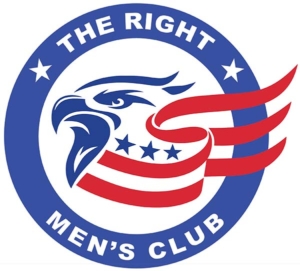

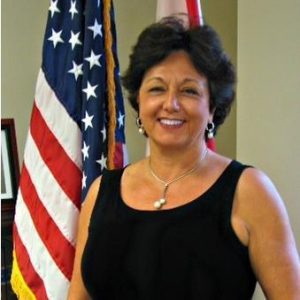 About Senator Kathleen Passidomo
About Senator Kathleen Passidomo About Representative Byron Donalds
About Representative Byron Donalds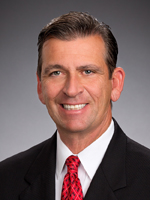 About Representative Bob Rommel
About Representative Bob Rommel Participants watch and discuss the documentary, “Saul Alinsky Went to War” and his impact on community organizing.
Participants watch and discuss the documentary, “Saul Alinsky Went to War” and his impact on community organizing.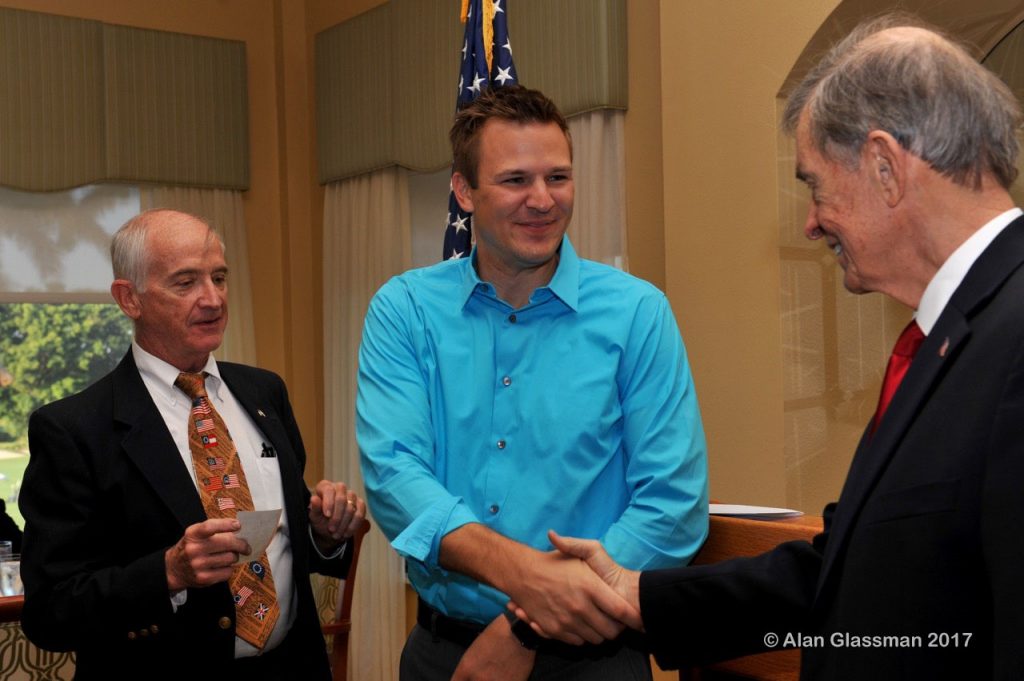 Art Garrison, treasurer, present a $500 check to Ron Kezeske, Chairman of the Republican Executive committee, with Republican Men’s Club President Jim Carter.
Art Garrison, treasurer, present a $500 check to Ron Kezeske, Chairman of the Republican Executive committee, with Republican Men’s Club President Jim Carter. Cybersecurity education and awareness is your first line of defense against attacks.
Cybersecurity education and awareness is your first line of defense against attacks.
 This was a very busy but successful week in the Florida Senate! I was able to present seven of my bills to various committees and participate in the passage of six bills on the Senator floor. During the week we also held appropriations committees meetings to discuss the budget for the upcoming fiscal year. It was also a great week personally as a number of constituents from all different organizations and businesses were at the Capitol to discuss issues involving our district!
This was a very busy but successful week in the Florida Senate! I was able to present seven of my bills to various committees and participate in the passage of six bills on the Senator floor. During the week we also held appropriations committees meetings to discuss the budget for the upcoming fiscal year. It was also a great week personally as a number of constituents from all different organizations and businesses were at the Capitol to discuss issues involving our district!